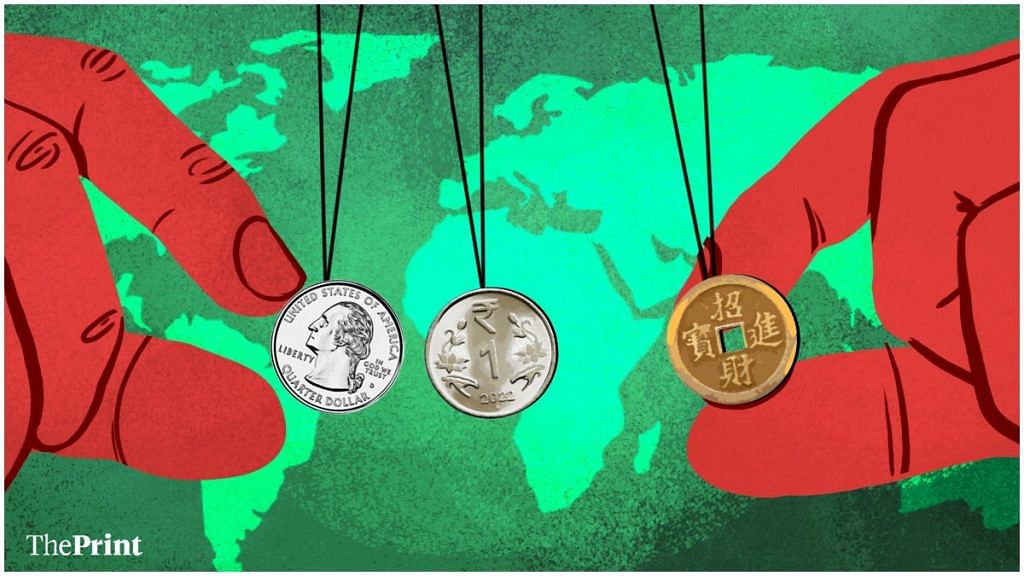There was a time when the world’s leading economies were the engines of global growth and, in their different ways, countries to be emulated — the United States, Northern Europe, Japan and China. Over the past 15 years, however, they have become the sources of global instability.
The 2008 financial crisis grew out of the excesses of US financial capitalism, and Covid out of laboratory collaboration between American and Chinese researchers. The governments in many of these countries responded to growing economic troubles with massive bail-outs, first of banks and companies and then of consumers, piling up debt and pushing monetary policy beyond its normal limits in order to control the fallout.
Matters got more complicated recently because of the existential fears of a fallen superpower, even as the rising one profited from years of unchecked mercantilism. The first has resulted in geographical annexation through war for the first time in many decades, while the rising power might well attempt the same, even as its mercantilism has caused trade distortions between countries and inequalities within them.
In turn the growing inequalities have forced questions about who benefited from globalisation, and the legitimate shares due in an economy to the owners of capital (profits) and the contributors of labour (wages). Almost inevitably, the world has passed the high noon of the liberal (critics would say “neo-liberal”) era, as disillusioned voters have sought refuge in nationalism, nativism, populism and thinly-disguised racism.
The political shockwaves, too, have come from the power centres of the world. Even the most self-assured democracies, like the United States, face an uncertain political future when opinion polls show that half the country says it will not accept the results of the next elections. In Europe, right-wing neo-fascists have gained support all the way from Sweden in the north to Italy in the south.
Now the economic unwinding has begun in the economic powerhouses, transmitting yet more shocks to a hapless periphery. Sharp interest rate swings are moving capital in and out of countries, and swinging currencies up and down. Free trade was supposed to prevent war through the creation of inter-dependence. But as the world divides into hostile camps, the supply chains of globalisation are being broken because the primary goal is now resilience, not efficiency.
Also read: Held back by oligarchs — Ukraine’s political, economic fate should be a warning to other nations
Governments (including a struggling China’s) wrestle to break free from slowing or anaemic growth, but are hobbled by debt and trapped between the contradictory pulls of recession and inflation — the latter caused partly by an economic war that has accompanied the military one. Britain’s desperate answer has been a budget-buster disguised as a “mini-budget”, provoking a currency plunge and risking a heart-stopping freeze of the bond market, Lehman style.
The US, China, Europe — these remain the financial, strategic, and economic centres of the world, but they are all systemically challenged simultaneously. One therefore has to look beyond the headlines signalling chaos and focus on the structural fault lines. Could the real problem in China be that it now confronts the middle-income trap, unable to find new growth engines to replace labour-intensive exports and an artificial property boom? What then of the power shift to Asia, and its future form when neighbouring Japan, Korea, and Taiwan are all high-income success stories?
In the US, are the less populous states trying to turn the electoral clock back to the pre-Civil Rights era and ensure permanent minority rule? Will a country with a racial mix radically different from the 1960s accept such a hijacking? And in Europe, will Russia have to be permanently hobbled, were that possible, in order to reassure the alienated neighbours to its West that don’t have geographically defensible borders? If there were some other way out, might the Ukraine war have been averted?
Such questions don’t yield to instant answers, but they have a domestic resonance. How does a rising middle-power like India shape its responses to future shocks that will certainly come in a changed world that is off balance? The answer has to be the same as for individuals and companies in turbulent times: Be alert, build bulwarks and capabilities while staying outward-focused, and retain room for manoeuvre.
By special arrangement with Business Standard
Also read: Why late-comer India has an advantage in embracing the Green economic transition
